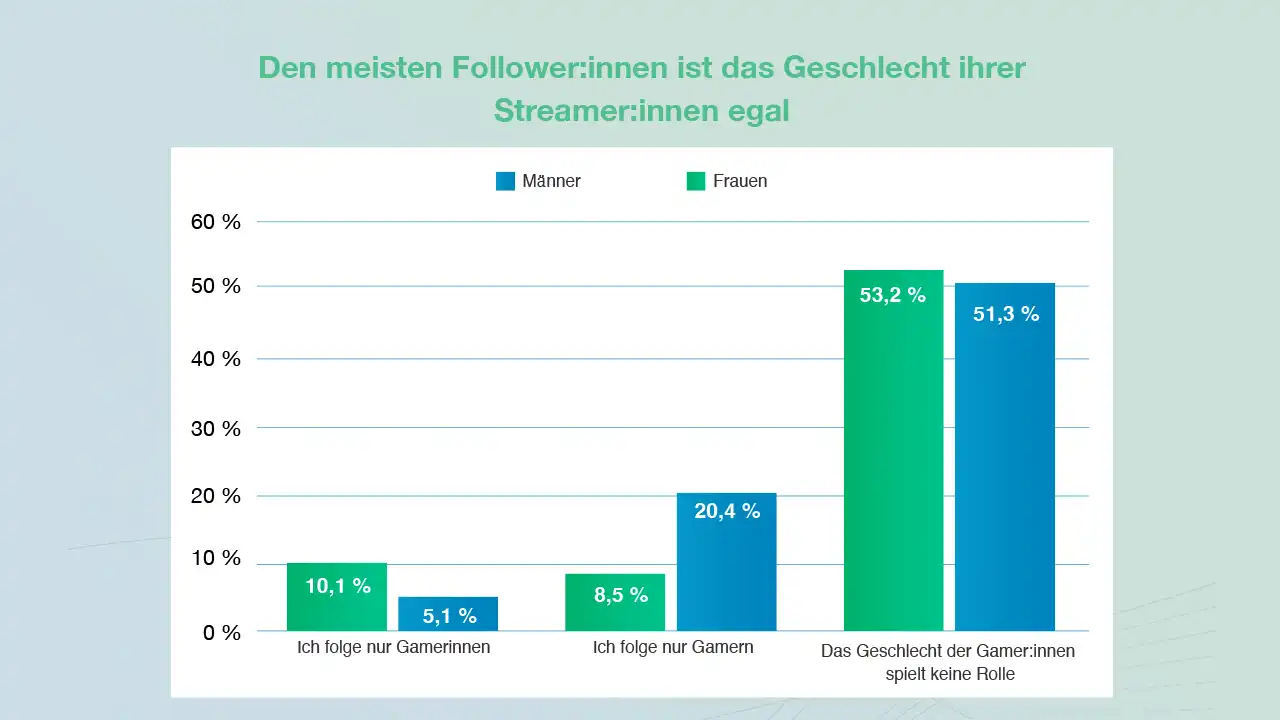The gaming industry has experienced an enormous boom in recent years and attracts people of all ages and genders. However, despite this diversity, there are still challenges and uncertainties, especially in terms of equal opportunities for men and women in the gaming scene. A study entitled On the same level? A Study on equal rights for male and female gamers sheds more light on this topic.
Facts and figures: 1,000 participants, 22 questions and the gaming world
The extensive study with 1,000 participants provided interesting insights into the world of gamers. The quantitative survey consisted of a total of 22 questions covering a wide range of topics. In addition to gaming habits, the Opinions and perceptions of the participants on various aspects of the professional gaming scene.

The age groups of the participants were carefully divided to ensure a representative sample. They ranged from 16 to 55 years old, which made it possible to examine the differences and similarities in the attitudes and behaviors of the different age groups. The average age of 33.8 years shows that both young and experienced gamers were represented in the study.
The gender distribution of the participants is also interesting. With a share of 63.1 percent, more men were represented in the study than women, who accounted for 36.5 percent. In addition, 0.4 percent of participants were classified as diverse. This distribution partly reflects the image of the gaming scene, in which there are traditionally more men than women. The findings from the study can therefore shed light on how this inequality affects the perception and behavior of gamers.
Video games at any age: results of the study on equality
It turned out that video games are played at any age. Furthermore, none of the study participants stated that they never play or play less than once a week. The group of 16 to 17-year-olds in particular play video games almost every day (57%), while this proportion is significantly lower among the oldest participants aged between 45 and 55 at 29.9%. Nevertheless, they also play video games regularly, and at 57% they make up the largest proportion of those who play video games. several times per week.

Satisfaction with gaming equipment: the preferences of different age groups
When it comes to gaming gadgets, all gamers have similar preferences, such as a good graphics card, a powerful processor, a high-resolution monitor and an ergonomic gaming chair. The 44 to 55-year-olds are the most satisfied with their current setup (13%), while the 18 to 24-year-olds are more satisfied with their current setup (13%). Need for improvement see. A comfortable gaming chair is particularly important to them, as 46 percent of them are dissatisfied with their current one.
In contrast, they see less potential for improvement in terms of technical equipment. In the age comparison, they were the least likely to say that they would like new monitors and graphics cards. The group of 16 to 17-year-olds is the most satisfied with their processor. Only 16% of them would be willing to replace their current processor, which lags far behind other age groups. On average, almost 32% say they would like a more powerful processor.

Pay in the gaming scene: perceptions of equality and insecurity
Another interesting aspect is the pay of men and women in the professional gaming scene. Only a few participants believe that men are paid less than women (12 percent), with the group of 18 to 24-year-olds most likely to agree. The oldest Age group (44- to 55-year-olds) is of the opinion that women are paid less, at just two percent.
However, many respondents, especially the youngest participants, are not sure about this topic (45%), while the oldest respondents are even more uncertain (46%). This study shows that there are still uncertainties and challenges in relation to equal rights for male and female gamers. It offers valuable Insights into the perception of the participants and offers approaches to solving this problem.
Click here for the study: On the same level? A study on equal rights for male and female gamers
